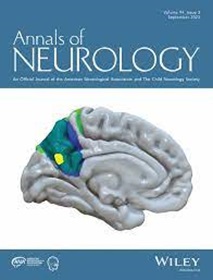Association of Seizure Control with Mortality, Cognition, and Function in People With Dementia
Abstract
Objectives
The effects of seizure control on outcomes in persons with dementia (PWD) remain unclear. Our study aimed to investigate the impact of seizure control on mortality, function, cognition, and mood among PWD.
Methods
This longitudinal, multicenter study is based on 39 Alzheimer's disease centers (ADCs) in the United States from September 2005 to December 2021. PWD were grouped by seizure status into recurrent (seizures in the past year), remote (prior seizures but none in the past year), and no seizures (controls). The primary outcome was all-cause mortality among seizure groups. We used Weibull survival analysis to assess the mortality risks by seizure status after adjusting for age, sex, education, race, ethnicity, hypertension, diabetes, hyperlipidemia, degree of cognitive impairment, dominant Alzheimer's disease (AD) mutation, brain trauma, stroke, Parkinson's disease, alcohol abuse, and depression. Cognition (Clinical Dementia Rating), function (physical dependence and nursing home residence), day-to-day activities (Functional Assessment Scores), and mood (Geriatric Depression Scale) were compared among seizure groups after adjusting for dementia duration and age.
Results
Among 26,501 participants, 374 (1.4%) had recurrent seizures and 510 (1.9%) had remote seizures. In multivariable survival analysis, recurrent seizures were associated with a higher mortality risk than remote and no seizures (adjusted hazard ratio [aHR], 95% confidence interval [95% CI]; recurrent aHR = 1.79, 95% CI = 1.51 to 2.12; remote aHR = 1.17, 95% CI = 0.98 to 1.38). Median time-to-death for recurrent, remote, and no seizures was 2.4, 4.0, and 4.7 years, respectively. People with recurrent seizures had worse cognition, day-to-day function, and physical dependence than those with remote seizures and controls.
Interpretation
PWD with poorly controlled recurrent seizures have worse mortality, functional, and cognitive outcomes than PWD with remote and no seizures. These findings underscore the need for timely identification and management of ongoing seizures in PWD. ANN NEUROL 2025;97:358–368


 求助内容:
求助内容: 应助结果提醒方式:
应助结果提醒方式:


